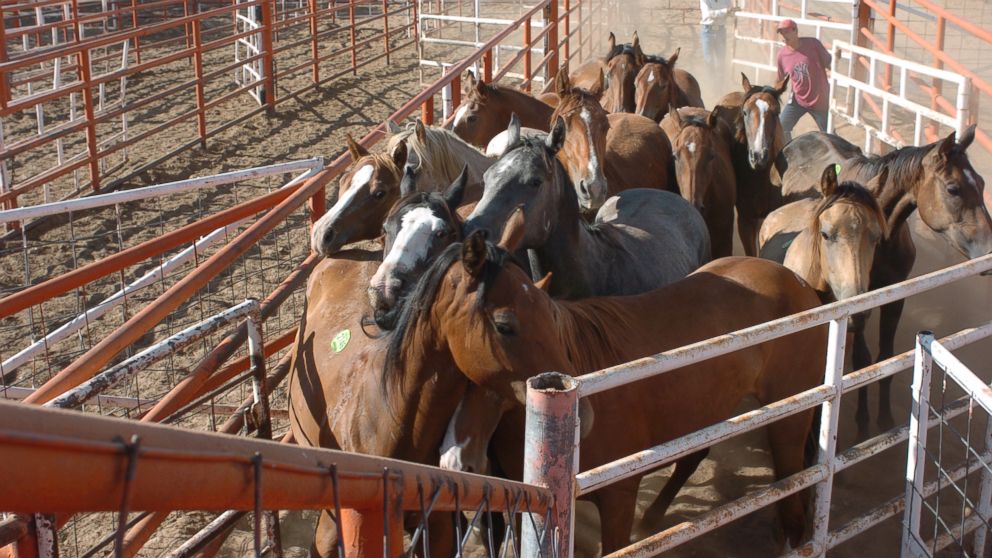Court Halts Slaughtering of Horses for Human Consumption
Federal appeals court halts slaughter of horses for steaks, chops or other food.

Nov. 5, 2013 -- Should horses be slaughtered for human consumption? That debate took a new turn this week, when a federal appeals court issued a temporary injunction that stops companies in Missouri and New Mexico from processing horses into steaks, chops or other food for humans.
Congress two years ago lifted the ban on that practice, and the Department of Agriculture issued permits to allow such slaughter. But the Humane Society and other animal protection groups intervened, bringing suit against the department, arguing that the USDA had not first performed necessary environmental tests before issuing the permits.
A judge on Friday dismissed that suit. But before companies could begin slaughter, the Humane Society appealed the ruling and got an emergency restraining order.
Holly Gann, Horse Slaughter Campaign Manager for the Humane Society tells ABC News that the order will delay future slaughter only temporarily. "We don't know how long," she says, "It could be only a few days."
The Society's long-term goal, she says, is to outlaw horsemeat production by statute. The Safeguard American Food Export Act (SAFE Act), now pending before House and Senate committees, she says, would accomplish that.
Consuming horses is a different proposition from consuming cows, say animal advocates. Horses, being more skittish than cows, are more difficult to kill accurately. A cow holds still for a blow to the head. A horse moves around. "Sometimes," Gann says, "the animals may still be conscious during dismemberment." She cites incidents of still-living horses with broken bones and "eyeballs hanging out."
The strange world of horsemeat regulation
A request by ABC News for comment from the International Equine Business Association, which represents slaughter houses seeking to process horsemeat, got no response.
The other difference between horses and cattle, says Gann, is that horses "are not raised in a regulated environment. They're companion animals—our pets." As such, she says, they can receive veterinarian-prescribed drugs and medications that can render their meat unfit for human consumption.
Earlier this year, chef Peter McAndrews in South Philadelphia saud he intended to serve horsemeat at his restaurant, Monsu. He tells ABC News that, as a chef, he's always interested in unique foods. He was familiar with horsemeat, he says, from having eaten it in Italy.
Horsemeat's flavor, he says, depends on how and where an animal has been raised. If raised on pasture grass, the flesh can have a slightly metallic taste-- "kind of like liver."
"I'd never served it at my restaurant," he clarifies, "But I was going to."
He got the idea during a visit to Canada, where, he says, the production of horse meat for human consumption is permitted. McAndrews says that shortly after he announced his intention to bring some horsemeat home and to offer it at his restaurant, he started getting death threats.
Holiday Reindeer Meat Sales Bring Protests
The USDA subjected his restaurant to an unannounced inspection. "It was all a little scary," he says.
Not wanting to expose himself (or his family or employees) to danger, and not wanting any more USDA inspections, he backed down from serving horse. "I didn't think the whimsy was worth putting myself or my children in harm's way."
He relented even though, he says, there would have been nothing illegal about his having served a nice juicy horsemeat steak. "It's not illegal to serve, just to buy."
Asked about the legality of serving horsemeat, the Humane Society says that, to be legal, the meat would have to be USDA inspected.